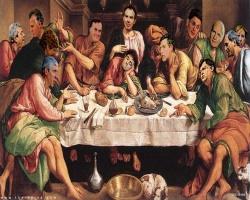Stephen Prothero picks up on the recent U.S. Religion Landscape survey from the Pew Forum on Religion and Public Life. His conclusion: “The story behind the numbers of this latest survey is not that religion is in trouble. It is that religion is morphing into something new. Faith is becoming more political. But it is becoming more personal at the same time.”
Numbers lie, but they also tell tales, untrustworthy and otherwise. So the key question stirring around the much discussed U.S. Religious Landscape Survey released in late February by the Pew Forum on Religion & Public Life is what tale does it tell about the religious state of the union?
For some, the story of this survey, based on interviews in multiple languages with more than 35,000 U.S. adults, is the strength of American religion.
Not too long ago, I wrote that American atheism was going the way of the freak show. As books by Christopher Hitchens and other “new atheists” climbed the best-seller lists, I caught a lot of flak for that prophecy. But atheists make up only 1.6 percent of respondents to this survey; 82 percent of respondents report that religion is either somewhat or very important in their lives.
Others find in this new data a nation of religious shoppers: 44 percent of the Americans surveyed have traded in their original religious home for another. Apparently, the grass is also greener at the church, synagogue, or mosque next door.
Still others, noting that only 51 percent of Americans describe themselves as Protestants, see Protestantism teetering on the verge of becoming a minority.
Catholicism is, at least by some readers of the tea leaves, in trouble, too, now that ex-Catholics constitute 10 percent of the population.




